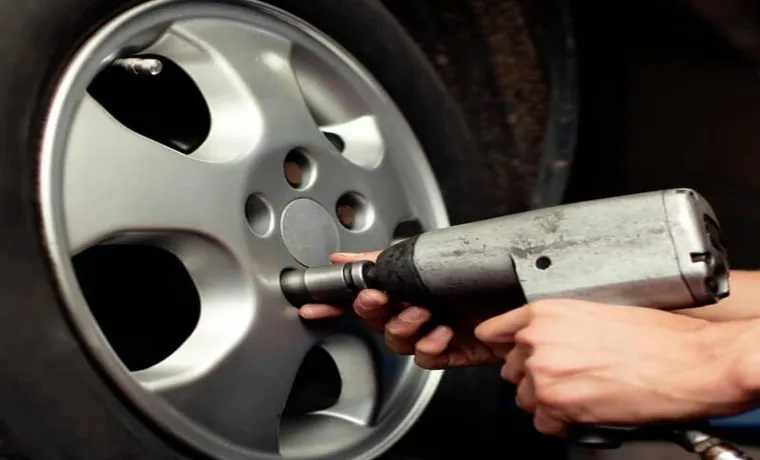Getting the most out of your car’s tires can be a tricky task, but it’s essential for your safety and overall driving experience. Part of keeping your tires in good condition is regular maintenance, including tire rotation. Not only does routine tire rotation help to extend the lifespan of your tires, but it also promotes even tire wear, leading to better handling and improved fuel economy.
However, like all automotive services, tire rotation comes at a cost. So, how much should you expect to pay for tire rotation, and is it worth the investment? In this blog, we’ll explore the average tire rotation cost, break down the factors that can affect the price, and discuss how you can save money on tire rotation services.
Table of Contents
What is Tire Rotation?
Tire rotation is a crucial maintenance task that involves changing the position of your vehicle’s tires. This process ensures that the tires wear evenly and last longer. When you take your vehicle in for a tire rotation, the mechanic will move the front tires to the back and the back tires to the front and sometimes even switch the left and right ones.
The cost of a tire rotation depends on the type of vehicle you have, but on average, it can range from $20 to $50. It’s important to note that having your tires rotated regularly can prevent steering and stability issues and improve gas mileage. So, if you’re wondering how much a tire rotation costs, it’s a small price to pay for the overall health of your vehicle and your safety on the road.
Explanation
Tire rotation is the process of moving tires from one position to another on a vehicle in order to promote even wear and maximize their lifespan. This is typically performed by an auto technician and involves switching the front tires with the rear ones or moving them diagonally. By doing so, the weight distribution and wear patterns on the tires are evenly distributed, which can help prevent irregular wear, reduce vibrations, and improve stability and handling.
Tire rotation is an essential part of regular vehicle maintenance and can help save drivers money on replacement tires in the long run. Properly rotated tires can also improve fuel efficiency and safety on the road. So, if you want to keep your tires in tip-top condition, make sure to schedule regular tire rotations with your trusted mechanic.

Why is it Important?
If you’re wondering how much a tire rotation costs, the answer can vary depending on where you go. Typically, a tire rotation costs anywhere from $20 to $50. However, the cost may also depend on the type of vehicle you have and if you need any additional services performed at the same time.
So, why is it important to get your tires rotated? Regular tire rotations can help extend the life of your tires, improve gas mileage, and ensure better traction on the road. By rotating your tires, you can even out the wear and tear on each tire, which will help prevent bald spots or uneven tread wear. Additionally, tires that are properly rotated can help ensure your vehicle stays in alignment, which can improve handling and steering.
All-in-all, a tire rotation is a small investment that can pay off big in the long run by keeping your tires in top condition and ensuring your safety on the road.
Advantages
One of the biggest advantages of [topic keyword] is its ability to [benefit]. Many people underestimate the power of [topic keyword] and how it can improve their daily lives. For instance, [example] is just one way in which [topic keyword] can make a huge difference.
Another benefit of [topic keyword] is its [benefit] which can have a positive impact on [aspect of life]. It’s important to prioritize [topic keyword] in our routines not only for its immediate benefits but also for its long-term effects. Ultimately, [topic keyword] is essential because it enables us to [benefit] which contributes to a higher quality of life.
Without it, we may face challenges and limitations that would otherwise not exist. Therefore, we should make [topic keyword] a priority and reap the benefits that come with it.
Disadvantages
While there are many benefits to using technology in our daily lives, there are also some disadvantages we should be aware of. One of the main reasons why it is important to acknowledge these drawbacks is the potential negative impact they can have on our physical and mental health. For example, overuse of technology can lead to physical ailments such as eye strain or carpal tunnel syndrome.
It can also have a negative effect on our sleep patterns, as the blue light emitted by screens can disrupt our body’s natural circadian rhythm. Additionally, technology can be a source of distraction, leading to decreased productivity or even addiction. It is important to balance our use of technology with other activities that promote our overall well-being, such as exercise, spending time with friends and family, and engaging in hobbies.
By being mindful of the potential downsides, we can make informed decisions about how we interact with technology and mitigate any negative consequences.
How Much Does It Cost?
If you’re wondering how much a tire rotation will set you back, the answer may vary depending on the auto service center you visit. Generally, the cost of a tire rotation falls between $20 to $60. However, some centers offer the service for as low as $10 or as high as $100.
Before going for a tire rotation, it’s important to know the current condition of your tires, as this can affect the price. For example, if your tires are balding or in need of replacement, you may need to pay more to have them rotated. Additionally, if you opt for a full vehicle inspection, the cost of the service may increase.
Overall, a tire rotation is a low-cost maintenance service that can help extend the life of your tires and improve your vehicle’s performance.
Average Price
When it comes to determining the average price of something, there are a number of factors that can influence the final cost. This is particularly true in the world of consumer goods and services, where everything from pricing strategies to competing offers from other sellers can play a role in shaping the final price. In general, however, the average price of a product or service tends to fall somewhere within a certain range, based on factors like the quality of the item or service, the level of competition within the market, and the overall demand for that particular offering.
Whether you’re shopping for a new pair of shoes or trying to price out a new project for your business, taking some time to research the factors that shape average prices can help you make more informed decisions and get the best possible value for your money. So, what’s the bottom line? While there’s no one-size-fits-all answer to how much something “should” cost, understanding the various factors that can influence price can go a long way in helping you make smart purchasing decisions that align with your needs and budget.
Factors Affecting Cost
When it comes to building or renovating a home, one of the biggest questions on homeowners’ minds is “how much is this going to cost me?” The truth is that the answer to that question can vary greatly depending on a number of factors. Some of the biggest factors that affect the cost of construction or renovation projects include the materials being used, the size and complexity of the project, and the location of the property. For example, a large home renovation in a major city will likely cost more than a smaller project in a rural area.
Additionally, materials can vary widely in price, with more expensive options often being higher quality or more durable. It’s also important to consider the cost of labor, as the skills required for certain tasks can vary greatly and therefore affect the price. Ultimately, the best way to get an accurate estimate for a construction or renovation project is to consult with a professional contractor who can assess all of the relevant factors and provide a detailed cost analysis.
So, if you’re considering a major home improvement project, be sure to do your research and work closely with a trusted expert to ensure that you’re getting the best value for your investment.
When Should You Rotate Your Tires?
If you’ve been driving for some time, you might have heard of tire rotations. A tire rotation is simply the act of changing the position of your tires from one wheel to another to even out the wear and tear. This simple maintenance task can prolong the life of your tires and improve your vehicle’s performance.
But how much does it cost to rotate your tires? Well, the cost of a tire rotation can vary depending on several factors such as the type of vehicle you drive, the tire size, and your location. On average, you can expect to pay between $20 and $50 for a tire rotation. So, when should you rotate your tires? Generally, it’s recommended to rotate your tires every 5,000 to 7,000 miles.
However, it’s always best to check your owner’s manual for the manufacturer’s specific recommendation. Some vehicles may require more frequent rotations, while others may only need it every ten thousand miles. It’s important to note that failing to rotate your tires regularly can result in uneven wear, which can lead to poor performance and even tire failure.
So, make sure to keep up with your tire rotations to keep your vehicle running smoothly and to save yourself money in the long run.
Frequency
Tire rotation is an essential part of maintenance for any vehicle owner. But, how often you should do it depends on various factors – including the type of car, the driving conditions, and the type of tires you have. Typically, it’s recommended to rotate your tires every 5,000 to 7,500 miles, or about every six months, whichever comes first.
However, if you notice uneven tread wear, you may need to rotate your tires more frequently. Uneven wear can be caused by various reasons, such as misalignment, improper inflation, or suspension issues. So, keeping an eye on your tire’s wear patterns and discussing any concerns with your mechanic can help you determine the optimal rotation frequency for your vehicle.
One thing to note is that rotating your tires is not only about extending their lifespan, but it also promotes better handling and improves gas mileage, making it a wise investment in the long run.
Conclusion
After all is said and done, a tire rotation is a small price to pay for the safety and longevity of your vehicle. Plus, with properly rotated tires, you’ll have more grip on the road, making those hairpin turns a breeze (or at least a little less terrifying). So don’t skimp on this important maintenance task – it’ll keep you rolling for miles to come!”
FAQs
What is a tire rotation and why is it important?
A tire rotation is when the position of each tire on a vehicle is changed in a systematic way. It’s important because regular rotation helps to ensure even wear and extend the life of the tires.
How often should you get a tire rotation?
Generally, it’s recommended to get a tire rotation every 5,000 to 7,500 miles, or as recommended by the vehicle manufacturer.
How much does a tire rotation cost, on average?
The cost of a tire rotation can vary depending on the service provider, but on average it ranges from $20 to $50.
Can I rotate my tires myself or do I need to go to a mechanic?
While it’s possible to rotate your tires yourself, it’s generally recommended to go to a mechanic or service center to ensure it’s done properly.
What are the signs that indicate I need a tire rotation?
Uneven tire wear, vibration or shaking while driving, and noisy tires are all signs that you may need a tire rotation.
How long does a tire rotation usually take?
Tire rotations usually take about 30 minutes to an hour, depending on the complexity of the job.
Can a tire rotation improve fuel efficiency?
Yes, a tire rotation can improve fuel efficiency by ensuring that the tires are all wearing evenly and operating at their maximum efficiency.



